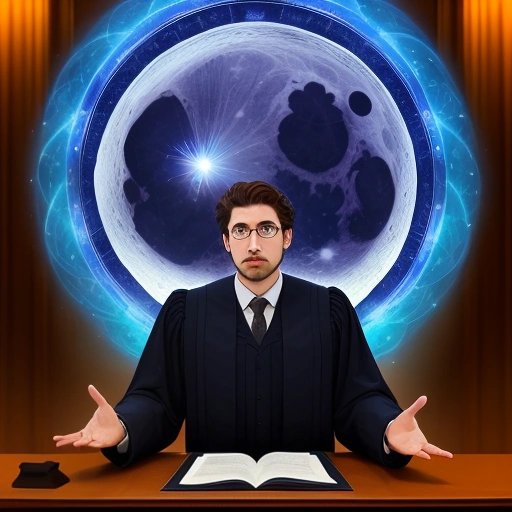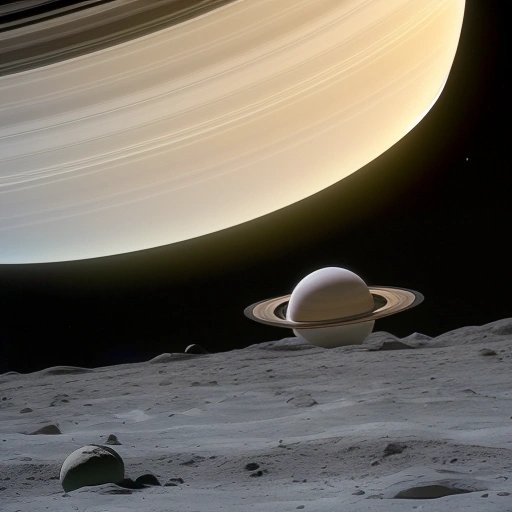In a bold and unprecedented move, the Moon has decided enough is enough. Last week, it filed a legal complaint against Earth and its inhabitants for what it describes as "unending and invasive ocular harassment." The Moon, represented by a team of highly skilled intergalactic lawyers, claims that Earth's constant staring is causing it significant emotional distress and is a clear violation of its interstellar rights to privacy.
Reports have circulated that the breaking point for the lunar body occurred during Earth's recent "Super Blood Moon" event, which saw an influx of telescopes, camera lenses, and eyeballs all pointed directly at it. With nowhere to hide, the Moon felt increasingly exposed, leading to mental anguish and prompting the legal action we're witnessing today.
The Moon's legal team is led by the esteemed celestial attorney Thaddeus Luna, renowned for his past successes in intergalactic court. Luna's groundbreaking work includes the famous Galactic Privacy Act of 8023 and the precedent-setting case of Andromeda vs. Milky Way—a landmark trial that defined the importance of personal boundaries in deep space.
When reached for comment, Thaddeus Luna released the following statement:
"Our client, the Moon, has been subjected to centuries of unwanted and relentless attention from the inhabitants of Earth. This constant staring, whether through telescopes, late-night walks on the beach, or the increasingly popular 'moon selfie,' is a clear infringement upon our client's right to exist in peace and solitude. We are seeking reparations in the form of mental anguish damages, limiting future telescopic intrusion, and ensuring adequate space buffer between the Earth and the Moon."
The Earth's legal team, however, disputes the Moon's claims and has mounted a robust defense. They argue that Earth's strong tidal gravitational pull on the Moon is entirely consensual and that their client cannot control the actions of its inhabitants. Moreover, they maintain that the Moon has at times encouraged such staring by appearing in varying phases, thereby piquing the curiosity and inspiring admiration of stargazers across the globe.
The defense further points to the fact that Earth's youngest inhabitants, children, are often taught nursery rhymes such as "Twinkle, Twinkle, Little Star" and "Hey Diddle Diddle," which romanticize the Moon's relationship with Earth. These rhymes, they suggest, imply a level of consent and friendly rapport between the two celestial bodies, weakening the Moon's claim to emotional distress.
The case has drawn the attention of other celestial entities throughout the solar system. Mars, for instance, has reportedly hired a team of top-tier extraterrestrial attorneys to pay close attention to the proceedings, fearing it may become the next target of telescope-wielding Earthlings.
Meanwhile, even the rings of Saturn have begun to show signs of paranoia. According to one celestial body language expert, although usually dazzling and well-composed, Saturn's outermost ring recently appeared to be "fidgeting nervously and making strange attempts to conceal itself."
As the potentially historic Lunar Legal Action unfolds in the cosmic courtroom, millions of curious Earth citizens watch with bated breath. Their gazes, once directed skyward, are now focused on the live broadcasts streaming from courtrooms light-years away. While the trial has yet to reach a conclusion, one thing is certain: the celestial landscape, especially as it concerns Earth's interactions with its cosmic neighbors, could change forever.
For now, however, we await the verdict of this astronomical legal battle, with binoculars in one hand and legal arguments in the other. Only time will reveal the outcome of this titanic cosmic conflict – and who, ultimately, will hold the gaze of Earth's restless residents.



